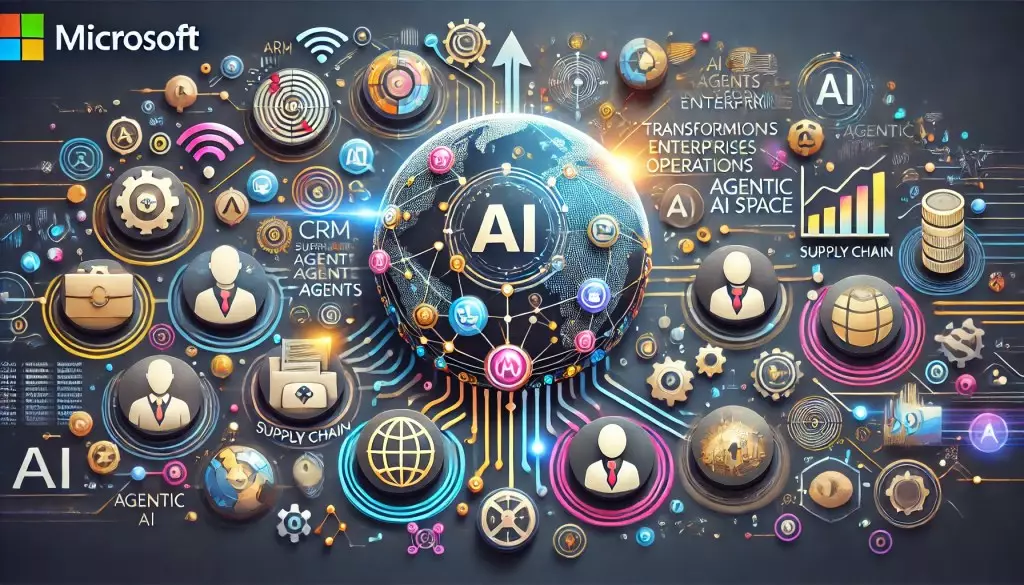Microsoft’s recent announcement at Ignite 2024 has set the stage for a significant shift in the enterprise landscape with the introduction of ten autonomous AI agents. This strategic move signifies Microsoft’s claim that AI is ready for practical applications in business, a feat that challenges the current offerings of its competitors. As the company embarks on this innovative journey, it aims to revolutionize industry processes, from customer relationship management (CRM) to supply chain logistics.
The ten newly launched AI agents are designed to enhance core operations within businesses, essentially toggling the focus from theory to actionable practices. These pre-built agents possess the capability to execute specific tasks without the need for extensive customization, which has historically plagued enterprise software deployment. For example, functions like lead qualification and supply chain optimization are now more accessible to organizations, allowing them to implement technological solutions rapidly and efficiently.
By offering these ready-to-use solutions, Microsoft not only cuts down the time businesses require to configure systems but also minimizes the barriers to entry for many organizations that may have been hesitant to invest heavily in AI due to the complexity involved. This streamlined approach seems to position Microsoft at the forefront of a practical AI revolution, simplifying the adoption of advanced technology for enterprises of various sizes.
One of the most remarkable aspects of Microsoft’s AI agent rollout is its extensive ecosystem. With over 1,400 third-party connectors available, along with support for more than 1,800 large language models (LLMs), Microsoft is not merely offering a single solution but rather fostering an interconnected landscape of tools. This expansive framework enables organizations to develop custom solutions while taking advantage of pre-existing connectors, making the enterprise environment far more flexible.
The company’s reach within its existing product range provides it with a decisive advantage over industry rivals. Competitors such as Salesforce and Google have made strides in the AI space, yet Microsoft’s ability to integrate across its suite of productivity applications allows it to offer comprehensive solutions that can cater to a broader array of commercial needs. With roughly 100,000 organizations reportedly using or modifying these agents, it’s clear that Microsoft is on a rapid growth trajectory, with deployment rates more than doubling in the last quarter alone.
The introduction of these autonomous agents does not merely challenge existing enterprise practices but drastically redefines the landscape of competition. Organizations that previously dominated specific niches, including startups focused on certain AI applications, may find themselves at a disadvantage in light of Microsoft’s comprehensive offering. By tapping into the targeted capabilities of these agents—such as lead scoring in CRM tools and effective time management—the company is reinforcing its position and raising the stakes for other players in the field.
Moreover, the shift in Microsoft’s pricing model—from a “per token” approach for LLMs to a more outcome-based value metric—indicates a significant reassessment of how AI can be monetized. This pivot not only underscores the value of end results rather than mere technical metrics but also suggests a movement towards achieving measurable business outcomes through AI deployment.
Despite these promising advancements, Microsoft must remain vigilant as competitors like Google, AWS, and various open-source platforms increasingly invest in AI capabilities. Although Microsoft currently leads this venture with its extensive offerings and robust ecosystem, the rapidly evolving landscape could see challengers catching up.
In a comprehensive three-part video series produced in collaboration with generative AI developer Sam Witteveen, we delve into the implications of Microsoft’s AI agents for business leaders. The series sheds light on how these tools can reshape enterprise workflows and what factors will sustain Microsoft’s competitive edge. As organizations weigh their options in the ever-competitive AI landscape, it will be intriguing to observe how Microsoft navigates this evolving trend and continues to leverage its unique position in the marketplace.
The introduction of Microsoft’s autonomous AI agents marks a pivotal moment for enterprises looking to enhance operations through AI. With practical, pre-built solutions tailored for specific needs, the potential for transformation in the business sector is immense, bridging the gap between theoretical capabilities and real-world applications.


Leave a Reply